Quick Sort Analysis
Quick Sort time complexity
Quick Sort : Based on Divide and Conquer paradigm.
- One of the fastest in-memory sorting algorithms (if not the fastest)
- is a very efficient sorting algorithm
- designed by C.A.R.Hoare in 1960.
- Consists of two phases:
- Partition phase
- Sort phase
Steps…
- Divide: Pick a pivot element and rearrange the array so that
– all elements to the left of the pivot are
smaller than the pivot.
– all elements to the right of the pivot are larger
than the pivot.
- Conquer: Recursively quicksort the left and right subarrays.
3:Combine: since subarrays are sorted in place, no work is needed to combine them, array is now sorted.

Quicksort – Partition phase
- Goals:
- Select pivot value
- Move everything less than pivot value to the left of it
- Move everything greater than pivot value to the right of it
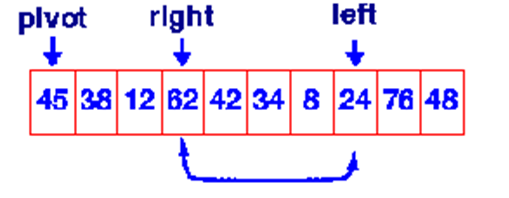
Algorithm: Quick Sort
Procedure QuickSort ( A, l, r )
if ( r > l ) then
j ¬ partition ( A, l, r );
QuickSort ( A, l, j – 1 );
QuickSort ( A, j + 1 , r );
end of if.
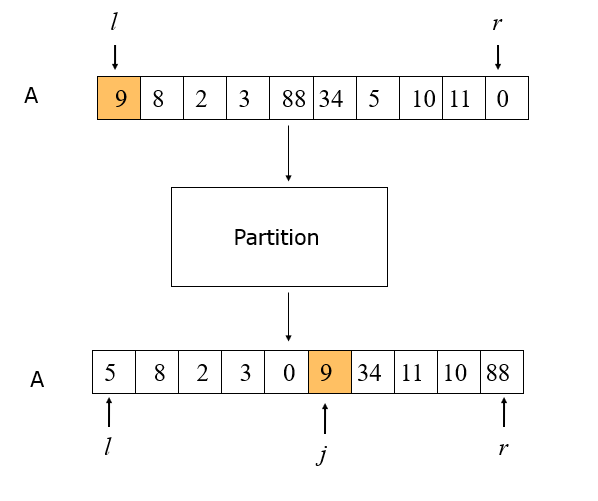
Function Partition (A, l, r )
v ¬ a[ l ]; i ¬ l ; j ¬ r;
while i<j
while (A[i]<=v && i<r) i++;
while (A[j]>v && j>l) j–;
if (i<j) then swap (a[ i ], a[ j ]);
A [ l ] = a[ j ]; a[ j ] ¬ v;
return ( j );
There are various algorithms for partition.
Above Algorithm does not need an extra array.
Only 3 variables v,i, and j are used.
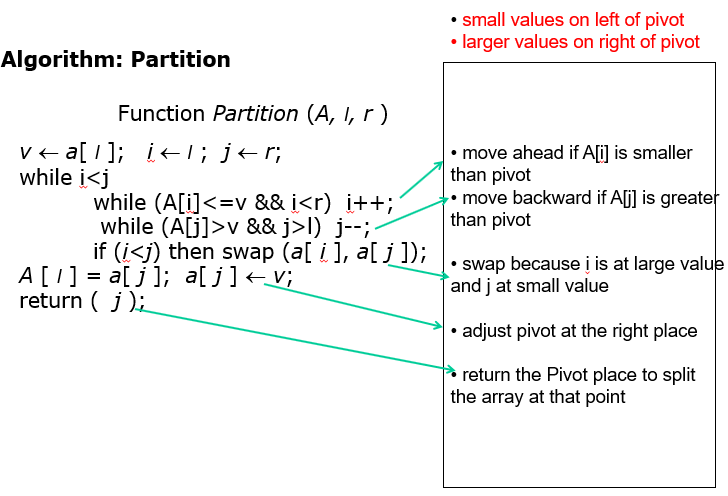
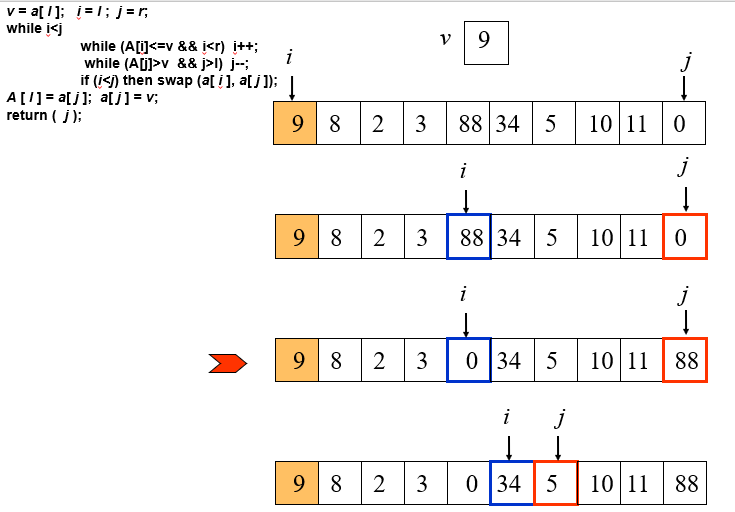
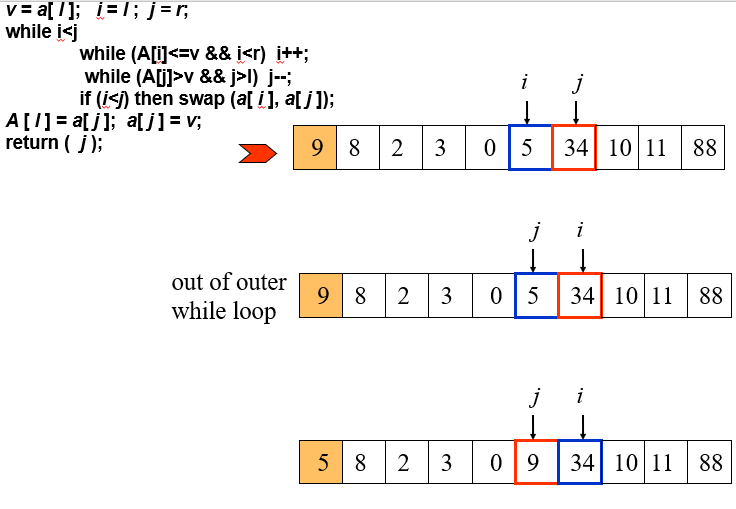
Time Complexity: Best case/average case
- Recurrence Relation
T(n)=2T(n/2) + n
Using Master Theorem applying case 2:
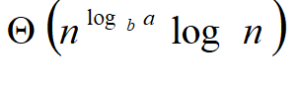
So time complexity is O(nlogn)
- Why is quick sort better than merge sort?
- Better memory consumption
The worst case is when the input is already sorted.

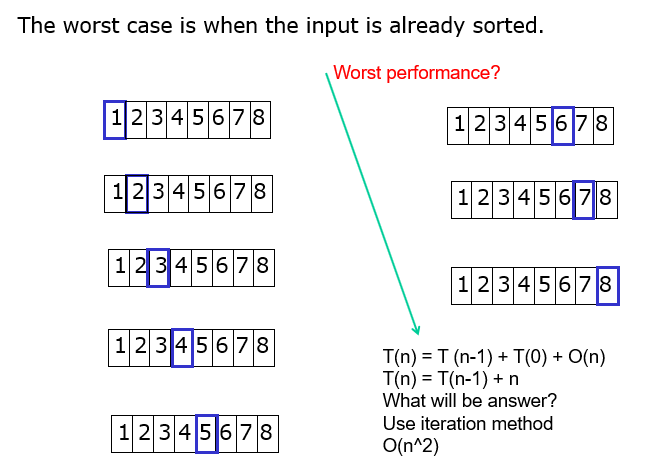
Randomized Quick Sort
- Randomize the input data before giving it to Quick Sort. OR
- In the partition phase, rather than choosing first value to be the pivot value, choose a RANDOM value to be pivot value.
- This makes Quick Sort run time independent of input ordering
- So Worst case won’t happen for SORTED inputs but may only happen by worseness of random number generator.
C++ code for quick sort using recursive function
#include <cstdlib>
#include <iostream>
#include<time.h>
#include<conio.h>
#define size 10
using namespace std;
void swap(int&a,int&b)
{
int tmp=a; a=b; b=tmp;
}
void quicksort(int a[],int left,int right)
{
int i=left,j=right,x=(left+right)/2,pivot=a[x];
while(1)
{
while(a[i]<pivot) i++;
if(i>x)break;
while(a[j]>pivot) j–;
if(j<x)break;
if(i<=j)
{
swap(a[i],a[j]);
i++;
j–;
}
}
if(j>left)
quicksort(a,left,j);
if(i<right)
quicksort(a,i,right);
}
int main()
{
srand(time(0));
int a[size],j=10;
for(int i=0;i<size;i++)
a[i]=rand()%100;
cout<<“Original Array: “;
for(int i=0;i<size;i++)
cout<<a[i]<<” “;
cout<<endl<<endl;
quicksort(a,0,size-1);
cout<<“Sorted Array: “;
for(int i=0;i<size;i++)
cout<<a[i]<<” “;
cout<<endl<<endl;
getch();
return EXIT_SUCCESS;
}
At Cui tutorial, courses, past papers and final year projects
#tutorial #cui #pastpaper #courses

